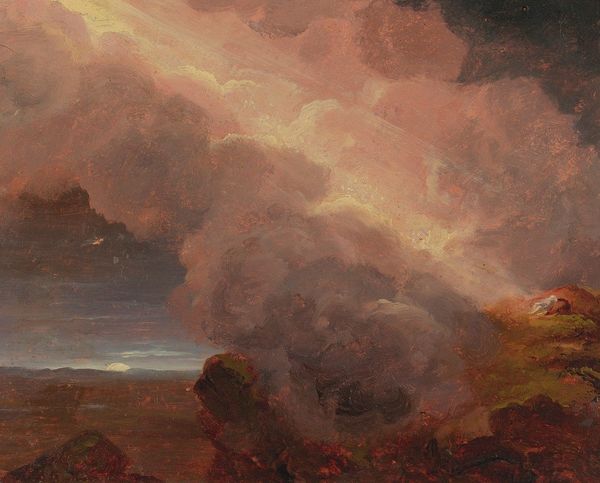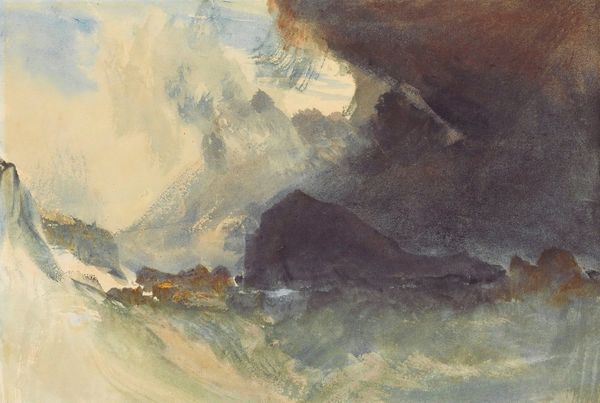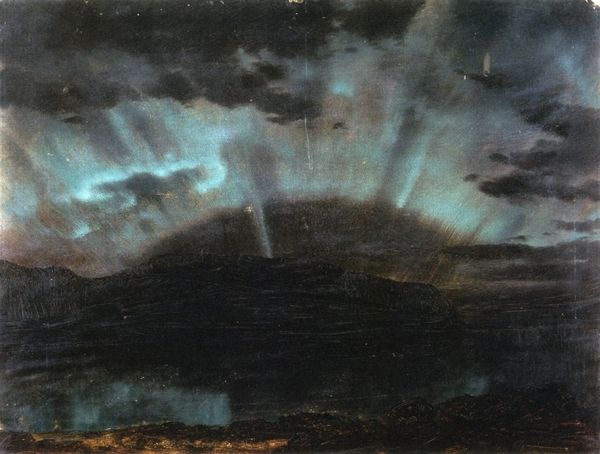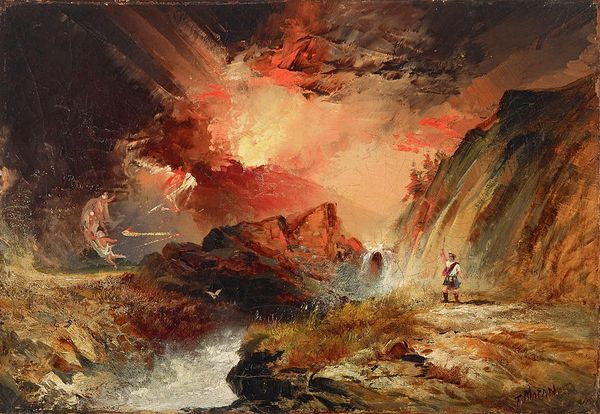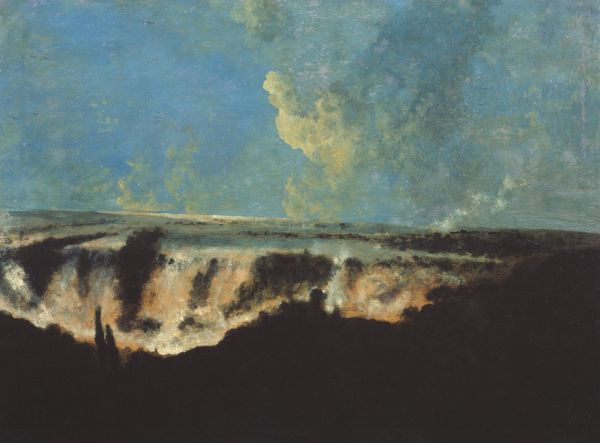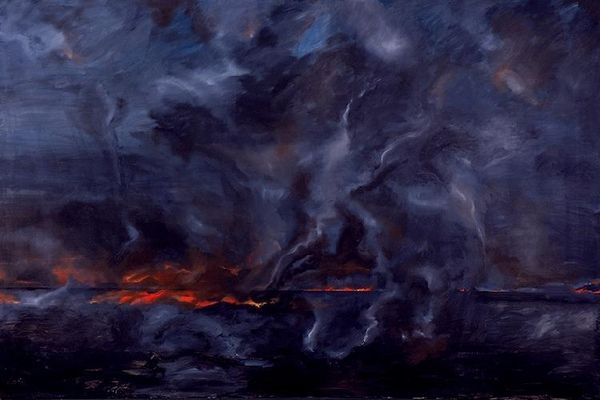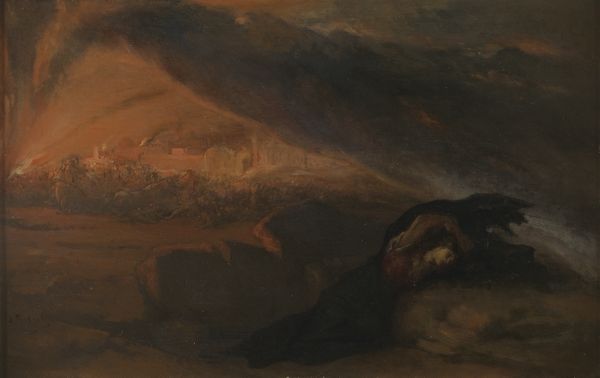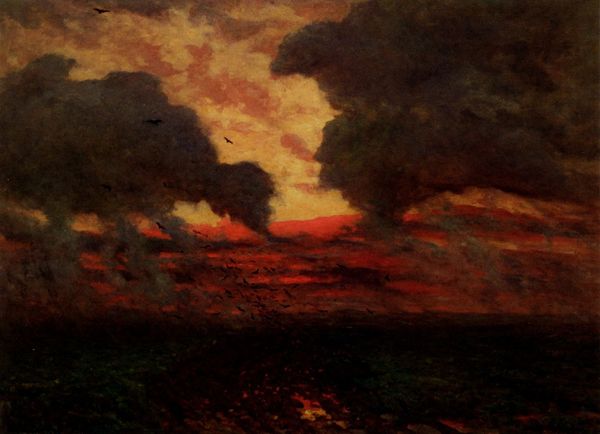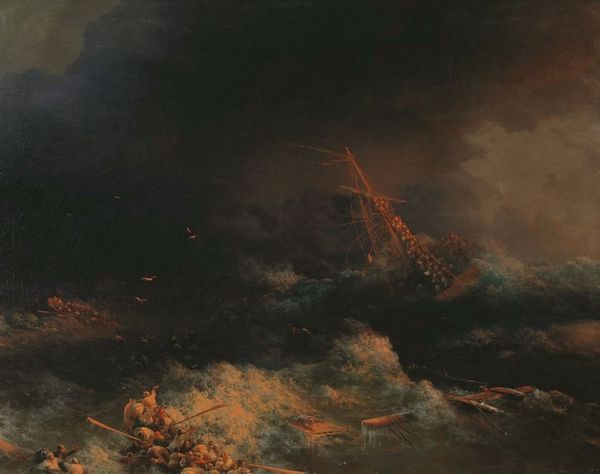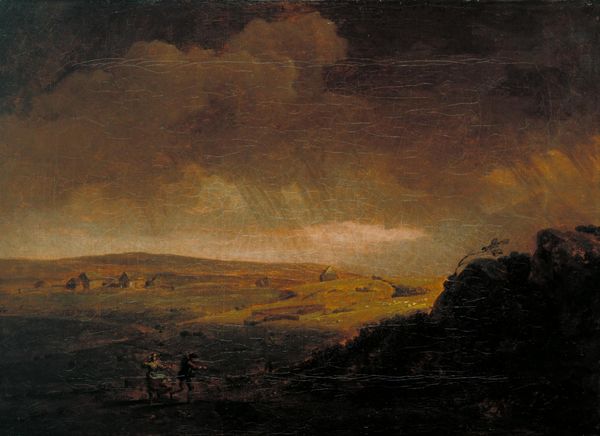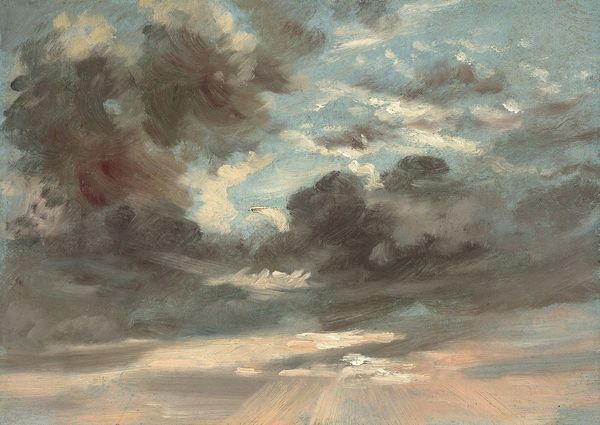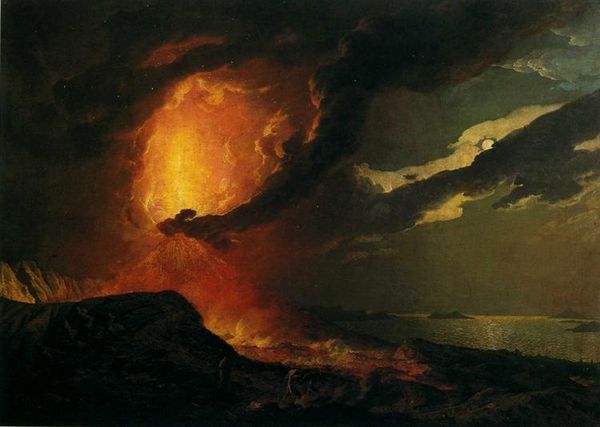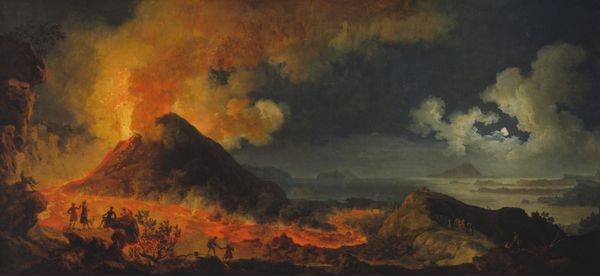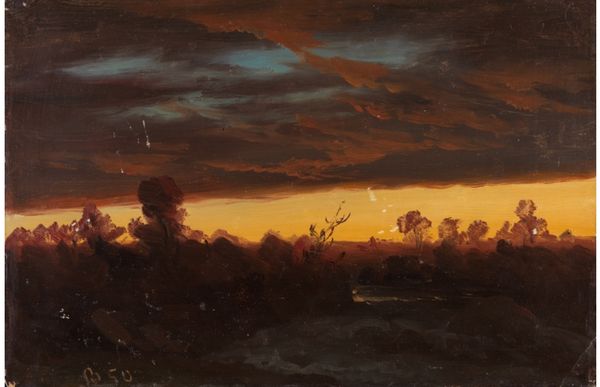
oil-paint
#
oil-paint
#
landscape
#
oil painting
#
romanticism
#
history-painting
#
sublime
Copyright: Public domain
Joseph Wright of Derby painted "The Eruption of Vesuvius" to explore themes of nature, science, and the sublime. This work fits into the late 18th century, a time when artists were fascinated by dramatic natural events and the power of scientific observation. This painting isn't just a depiction of a volcano; it's a commentary on the human relationship with the natural world. The eruption of Mount Vesuvius was a major event in Europe. Wright never visited Italy, and his inspiration came from written and visual accounts that were in circulation at the time. We know that institutions, like the Royal Academy, where Wright exhibited, played a crucial role in shaping artistic tastes. He, in turn, challenged expectations by focusing on industrial and natural subjects. Was he self-consciously progressive? By studying period writings, travel accounts, and the history of science, we can better understand the meaning that this painting held for its original audience. Art history allows us to consider these connections, and grasp the artwork’s engagement with the social structures of its time.
Comments
No comments
Be the first to comment and join the conversation on the ultimate creative platform.
